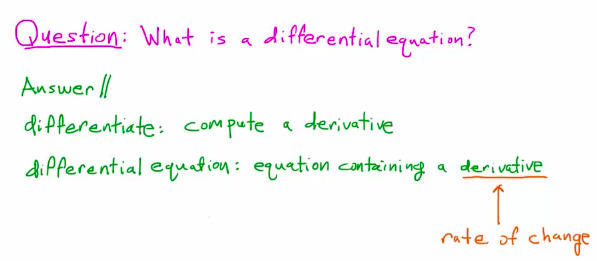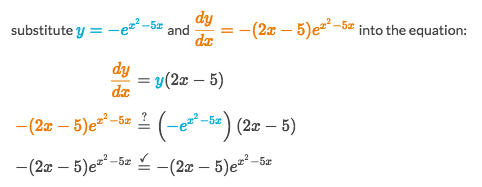▶️Differential Equations

Example
 Solve:
Solve: 
Example
 Solve:
Solve:
Just for reminder: the
Inversely proportionalmeansy = k/xwherekis constant. Jump back to previous note: Proportional Relationship.Assume the function of distance is
S(t) = v · t.So the speed must be the rate of change of distance, so the speed is
v = S'(t)Since the speed is inversely proportional to distance's square, so it means
v = S'(t) = k/S²
Example
 Solve:
Solve:
Assume the amount of medication is
M(t).Now all the informations we have are:
M(0) = 150M(13) = 150/2 = 75M' = dM/dt = k · Mbecause they're Proportional.The problem is asking
M(8) = ?.
So change a bit of
M'to1/M · dM = k · dt.Take integral of each side to get
ln(M) = k · t +C, and furtherM = C · eᵏᵗBy introduce the initial condition, we get
M(0) = 150 = C · e⁰ = CBy another information, we get
M(13) = 150 · e¹³ᵏ = 75And further,
13k = ln(1/2), sok = ln(0.5)/13And now we get everything of the function
M(t), let's solve forM(8)`M(8) = 150 · e^(8 · ln(0.5)/13) ≃ 97.9
Last updated